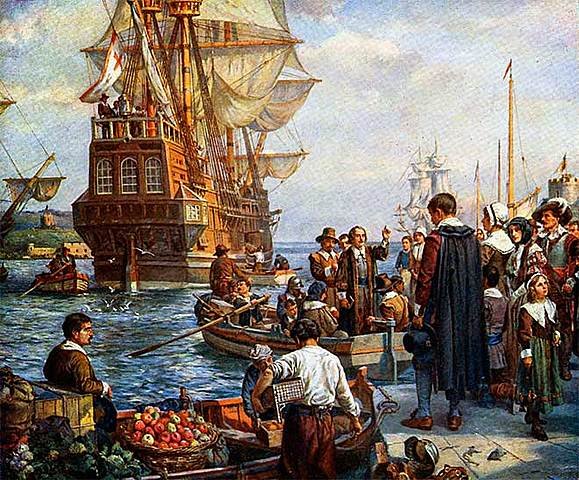An Introduction to Adam Smith
Adam Smith, an 18th-century Scottish philosopher and economist, is widely recognized as the “father of modern economics.” His work and theories were fundamental during the Enlightenment, an era marked by a commitment to knowledge and reason. Smith particularly excelled in the field of classical economics, a school that established the basic principles upon which many later economic theories were built.
One of Smith’s cardinal ideas was the concept of the “invisible hand,” a metaphor illustrating how individuals pursuing their self-interest inadvertently contribute to the overall well-being of society. This revolutionary perspective not only transformed economic thought in his time but also remains a cornerstone of contemporary economic theory. Smith also emphasized the importance of international trade and the division of labor as mechanisms to increase the wealth of nations—concepts that continue to hold critical relevance today.
The historical context in which Smith lived was crucial for the development of his ideas. In the 18th century, Europe was undergoing significant economic and social changes, with the early stirrings of the Industrial Revolution on the horizon. These transformations spurred the search for new ways to organize economic activity, and in works like The Wealth of Nations, Smith provided a theoretical framework that helped to understand and optimize these emerging processes.
Theory of Value and the Division of Labor
In his seminal work The Wealth of Nations, Adam Smith made one of his most influential contributions: the theory of the division of labor. According to Smith, dividing labor into specialized tasks is key to increasing efficiency and productivity within any economic system.
Smith illustrated that breaking down production processes into smaller, specialized tasks enables workers to develop specific skills and work more quickly, thereby boosting overall production efficiency. This approach not only increases the volume of goods and services produced but also reduces production costs, benefiting both producers and consumers.
The division of labor is deeply connected to international trade. Smith argued that specialization should extend beyond individuals to entire nations. Countries should concentrate their resources on producing those goods and services in which they hold a comparative advantage—that is, where they can produce more efficiently relative to other nations. This specialization allows nations to benefit from trading with one another, thereby enhancing the overall variety and quality of goods available in global markets.
For example, a country with ideal conditions for coffee cultivation should specialize in coffee production, while another country with abundant mineral resources should focus on extracting minerals. Through international trade, each nation can exchange its specialized products, resulting in a more efficient global allocation of resources.

Absolute Advantage
Adam Smith also contributed a key concept to economic theory with his idea of absolute advantage. This principle states that if a country can produce certain goods more efficiently than another, it should specialize in producing those goods and trade with other nations for goods it produces less efficiently. According to Smith, international trade enables nations to optimize their production and improve their overall economic welfare.
Consider a practical example between two nations, Spain and Argentina: if Spain can produce high-quality wine using fewer resources than Argentina, while Argentina can produce meat at a lower cost than Spain, then Spain should specialize in wine production and Argentina in meat production. Trading these specialized products allows both nations to benefit, leading to a more efficient global resource allocation and a wider variety of goods for consumers.
The theory of absolute advantage underscores the importance of international trade as a mechanism to drive economic growth and efficiency. By allowing each nation to specialize in the production of goods in which it is most efficient, the global economy becomes more productive and equitable. Smith’s idea that trade benefits all parties by leveraging differences in production efficiency remains one of the enduring pillars of international trade theory.

Theory of International Trade
Adam Smith’s contributions are central to understanding the fundamentals of international trade. He was a fervent advocate of free trade and the elimination of trade barriers. Smith argued that free trade enables nations to specialize in producing goods where they have a comparative advantage—that is, where they can produce more efficiently than others. This specialization, in turn, leads to higher economic efficiency and global prosperity.
In The Wealth of Nations, Smith denounced the protectionist barriers such as tariffs and restrictions, arguing that these impediments only obstruct the natural flow of goods and services between nations. He believed that removing these barriers would allow consumers to benefit from a greater variety of products at lower prices, while also stimulating competition and efficiency within domestic economies.
The concept of the “invisible hand” is also essential in Smith’s theory. This metaphor suggests that while businesses pursue their own profits, their efforts inadvertently benefit society as a whole by increasing the supply of goods, reducing prices, and encouraging innovation. This natural order operates without the need for direct government intervention, highlighting the importance of a free, self-regulating market.
Smith’s vision for international trade not only provided a theoretical framework for modern economics but also influenced numerous economic policies that underscore the value of global cooperation and interdependence. His arguments in favor of free trade remain highly relevant today, demonstrating how openness and global economic interaction can drive growth and development.
Influence on Classical Economics
Adam Smith played a pivotal role in the development of classical economics. His ideas revolutionized economic thought and laid the groundwork for later economists such as David Ricardo and John Stuart Mill.
- David Ricardo expanded on Smith’s work by developing the concept of comparative advantage, which deepened the understanding of why nations benefit from trade even when one country is less efficient in producing all goods.
- John Stuart Mill further refined classical economic theories, integrating them with utilitarian principles to create a more balanced approach to economic policy that considers both growth and social welfare.
These contributions established a robust theoretical basis for understanding international trade and continue to influence economic policies and debates to this day.
Relevance in Modern International Trade
Adam Smith’s theories continue to shape modern international trade. His ideas on free trade and absolute advantage have provided a solid foundation for global economic development. In today’s globalized economy, Smith’s insights have facilitated the creation of free trade agreements and have helped reduce tariff barriers, enabling nations to specialize in the production of goods and services in which they have a competitive edge.
Smith’s principles are also crucial for contemporary debates on protectionism versus free trade. While protectionist measures are sometimes implemented to shield domestic industries, Smith’s analysis suggests that such interventions can ultimately harm consumers by raising prices and limiting choices. His concept of the “invisible hand” remains a powerful argument for maintaining open and competitive markets.
Modern trade agreements—such as NAFTA and the European Union—are grounded in ideas derived from Smith’s economic theories, promoting economic integration and sustained growth by eliminating trade barriers and fostering interdependence among nations.
Historical Criticisms
Despite his groundbreaking contributions, Adam Smith’s theories have not been without criticism. One notable limitation of his absolute advantage theory was that it did not fully explain international trade patterns. Smith argued that nations should focus on goods where they have an absolute advantage, but this approach was later refined by David Ricardo’s theory of comparative advantage, which showed that even countries without an absolute advantage could benefit from trade if they specialized in goods produced at a lower relative cost.
Furthermore, Smith’s concept of the “invisible hand” has been challenged by modern observations of market failures, such as externalities and monopolies, which can distort market outcomes. Critics argue that in some cases, government intervention and regulation are necessary to correct these inefficiencies and protect public welfare.
The existence of monopolies and oligopolies also poses challenges to Smith’s vision of self-regulating markets. Modern economic theory recognizes that these market structures can restrict competition and lead to suboptimal outcomes, necessitating regulatory measures to ensure fairness and efficiency.
Contemporary Debates
In today’s era of globalization and rapidly evolving financial markets, Adam Smith’s ideas continue to provoke reflection and debate. The Wealth of Nations remains a foundational text for classical economic theory and the analysis of international trade. However, modern challenges—such as economic crises, technological disruptions, and geopolitical tensions—have prompted scholars to reexamine whether Smith’s principles alone are sufficient to address the complexities of today’s global economy.
Recent economic crises, like the 2008 Great Recession, have underscored the need for some degree of government intervention to stabilize markets. This has led to ongoing debates about the appropriate balance between free market forces and regulatory oversight. Additionally, issues such as income inequality, environmental sustainability, and digital transformation are prompting economists to revisit and adapt Smith’s ideas to better suit contemporary realities.
Finally, the digital revolution has transformed the nature of commerce. While Smith’s theories were developed in an era focused on physical goods, today’s economy is increasingly driven by services and digital products. Adapting his principles to a digital economy remains an ongoing challenge and a subject of current research.
References
- Works from Adam Smith
- Smith, Adam. The Wealth of Nations. 1776. Penguin Classics, 2000.
- Smith, Adam. The Theory of Moral Sentiments. 1759. Penguin Classics, 2009.
- Academic papers about Adam Smith
- Ross, Ian S. The Life of Adam Smith. Clarendon Press, 1995.
- Skinner, Andrew S. Adam Smith: The Theory of Moral Sentiments and On the Wealth of Nations. Penguin Classics, 2009.
- Rothschild, Emma. Economic Sentiments: Adam Smith, Condorcet, and the Enlightenment. Harvard University Press, 2002.
- Essays
- Blaug, Mark. Economic Theory in Retrospect. Cambridge University Press, 1997.
- Stiglitz, Joseph E., and Charlton, Andrew. Fair Trade for All: How Trade Can Promote Development. Oxford University Press, 2005.


